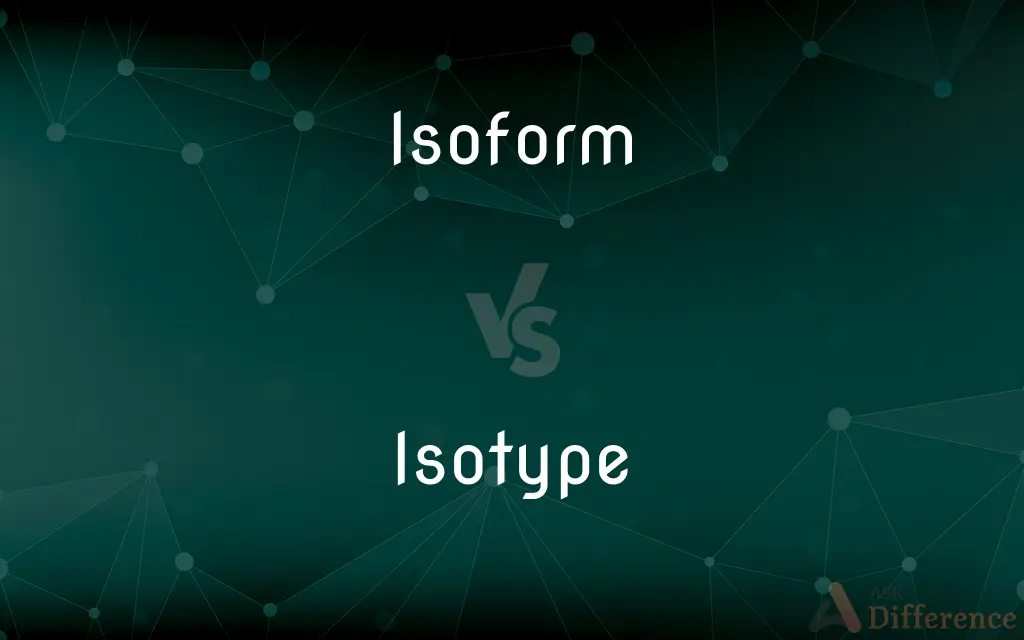Isoform vs. Isotype — What's the Difference?

Difference Between Isoform and Isotype
ADVERTISEMENT
Compare with Definitions
Isoform
Any of the chemically distinct forms of a protein that perform the same biochemical function, although often at different rates.
Isotype
A biological specimen or other element that is a duplicate of the holotype.
Isoform
(biochemistry) Any of several different forms of the same protein, arising from either single nucleotide polymorphisms, differential splicing of mRNA, or post-translational modifications (e.g. sulfation, glycosylation, etc.)
Isotype
Any of several classes or subclasses of immunoglobulins, such as immunoglobulins A and G, that are distinguished by differences in the amino acid sequence of the constant regions of their heavy chains. All isotypes are usually found in every individual of a species.
Isotype
(immunology) A marker corresponding to an antigen found in all members of a subclass of a specific class of immunoglobulins
ADVERTISEMENT
Isotype
A duplicate specimen of the holotype, from the same genetic individual.
Share Your Discovery

Previous Comparison
Excuse vs. Explanation
Next Comparison
Document vs. Manuscript














































